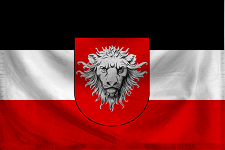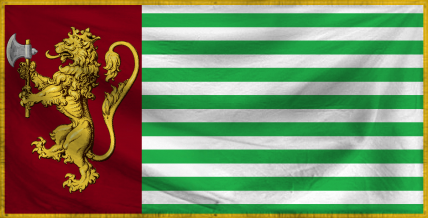

![]() by Freistaat-Ostafrika » Fri Apr 13, 2018 3:29 pm
by Freistaat-Ostafrika » Fri Apr 13, 2018 3:29 pm

![]() by -The United Federation of Nations- » Fri Apr 13, 2018 3:32 pm
by -The United Federation of Nations- » Fri Apr 13, 2018 3:32 pm

![]() by Freistaat-Ostafrika » Tue Apr 17, 2018 11:38 am
by Freistaat-Ostafrika » Tue Apr 17, 2018 11:38 am

![]() by -The United Federation of Nations- » Tue Apr 17, 2018 1:02 pm
by -The United Federation of Nations- » Tue Apr 17, 2018 1:02 pm

![]() by Freistaat-Ostafrika » Sun Apr 22, 2018 12:23 pm
by Freistaat-Ostafrika » Sun Apr 22, 2018 12:23 pm

![]() by -The United Federation of Nations- » Mon Apr 23, 2018 8:30 am
by -The United Federation of Nations- » Mon Apr 23, 2018 8:30 am

![]() by Freistaat-Ostafrika » Sat Apr 28, 2018 2:34 pm
by Freistaat-Ostafrika » Sat Apr 28, 2018 2:34 pm

![]() by -The United Federation of Nations- » Tue May 01, 2018 5:28 pm
by -The United Federation of Nations- » Tue May 01, 2018 5:28 pm

![]() by Layarteb » Wed May 02, 2018 6:38 pm
by Layarteb » Wed May 02, 2018 6:38 pm
Wednesday, April 25, 2018 | 15:40 hrs [UTC-5]
Layarteb City, New York | Fortress of Comhghall
40° 41' 28" N, 74° 0' 58" W

![]() by Freistaat-Ostafrika » Tue May 08, 2018 1:59 pm
by Freistaat-Ostafrika » Tue May 08, 2018 1:59 pm

![]() by Cotland » Wed May 09, 2018 11:42 am
by Cotland » Wed May 09, 2018 11:42 am

![]() by -The United Federation of Nations- » Wed May 09, 2018 2:39 pm
by -The United Federation of Nations- » Wed May 09, 2018 2:39 pm

![]() by Freistaat-Ostafrika » Tue May 15, 2018 1:15 pm
by Freistaat-Ostafrika » Tue May 15, 2018 1:15 pm

![]() by -The United Federation of Nations- » Tue May 15, 2018 2:17 pm
by -The United Federation of Nations- » Tue May 15, 2018 2:17 pm

![]() by Layarteb » Tue May 15, 2018 7:46 pm
by Layarteb » Tue May 15, 2018 7:46 pm
Friday, April 27, 2018 | 13:14 hrs [UTC+3]
Gulf of Aden | ILS Marvin J. McCollum (DDGN-115)
12° 45' 51" N, 48° 19' 16" E

![]() by Freistaat-Ostafrika » Sun May 20, 2018 10:18 am
by Freistaat-Ostafrika » Sun May 20, 2018 10:18 am

![]() by -The United Federation of Nations- » Tue May 22, 2018 2:28 pm
by -The United Federation of Nations- » Tue May 22, 2018 2:28 pm

![]() by Freistaat-Ostafrika » Sun May 27, 2018 7:36 am
by Freistaat-Ostafrika » Sun May 27, 2018 7:36 am

![]() by Layarteb » Sun May 27, 2018 10:20 pm
by Layarteb » Sun May 27, 2018 10:20 pm
Thursday, May 17, 2018 | 10:05 hrs [UTC-5]
Layarteb City, New York | Fortress of Comhghall
40° 41' 28" N, 74° 0' 58" W

![]() by Freistaat-Ostafrika » Mon Jun 04, 2018 1:10 pm
by Freistaat-Ostafrika » Mon Jun 04, 2018 1:10 pm

![]() by Layarteb » Wed Jun 06, 2018 8:01 pm
by Layarteb » Wed Jun 06, 2018 8:01 pm
Monday, May 21, 2018 | 13:30 hrs [UTC+3]
Dar es Salaam, Freistaat Ostafrika | Embassy of the Empire of Layarteb
6° 46' 21" S, 39° 15' 59" E
Monday, May 21, 2018 | 13:50 hrs [UTC+3]
Dar es Salaam, Freistaat Ostafrika | Zentrale Tower
6° 49' 0" S 39° 17' 17" E

![]() by Freistaat-Ostafrika » Sat Jun 09, 2018 2:52 pm
by Freistaat-Ostafrika » Sat Jun 09, 2018 2:52 pm

![]() by -The United Federation of Nations- » Fri Jun 15, 2018 7:15 am
by -The United Federation of Nations- » Fri Jun 15, 2018 7:15 am

![]() by Freistaat-Ostafrika » Fri Jun 22, 2018 1:11 pm
by Freistaat-Ostafrika » Fri Jun 22, 2018 1:11 pm
Advertisement
Return to International Incidents
Users browsing this forum: Terra Magnifica Gloria, Vorkat
Advertisement